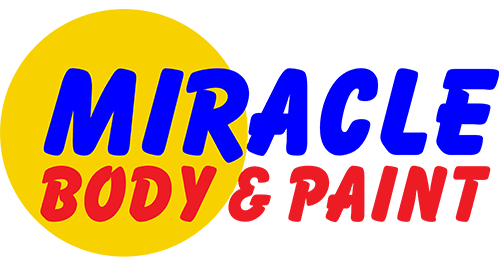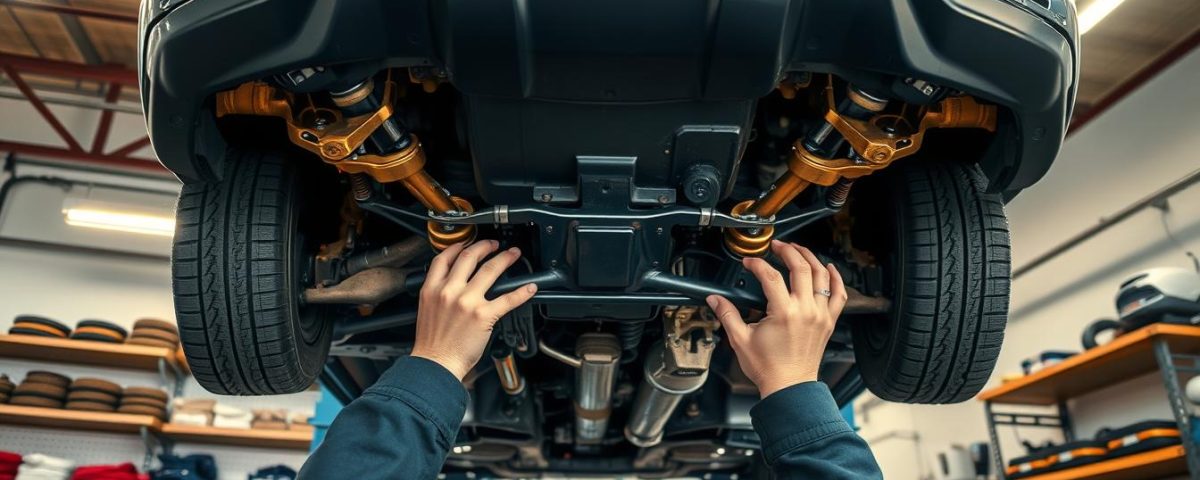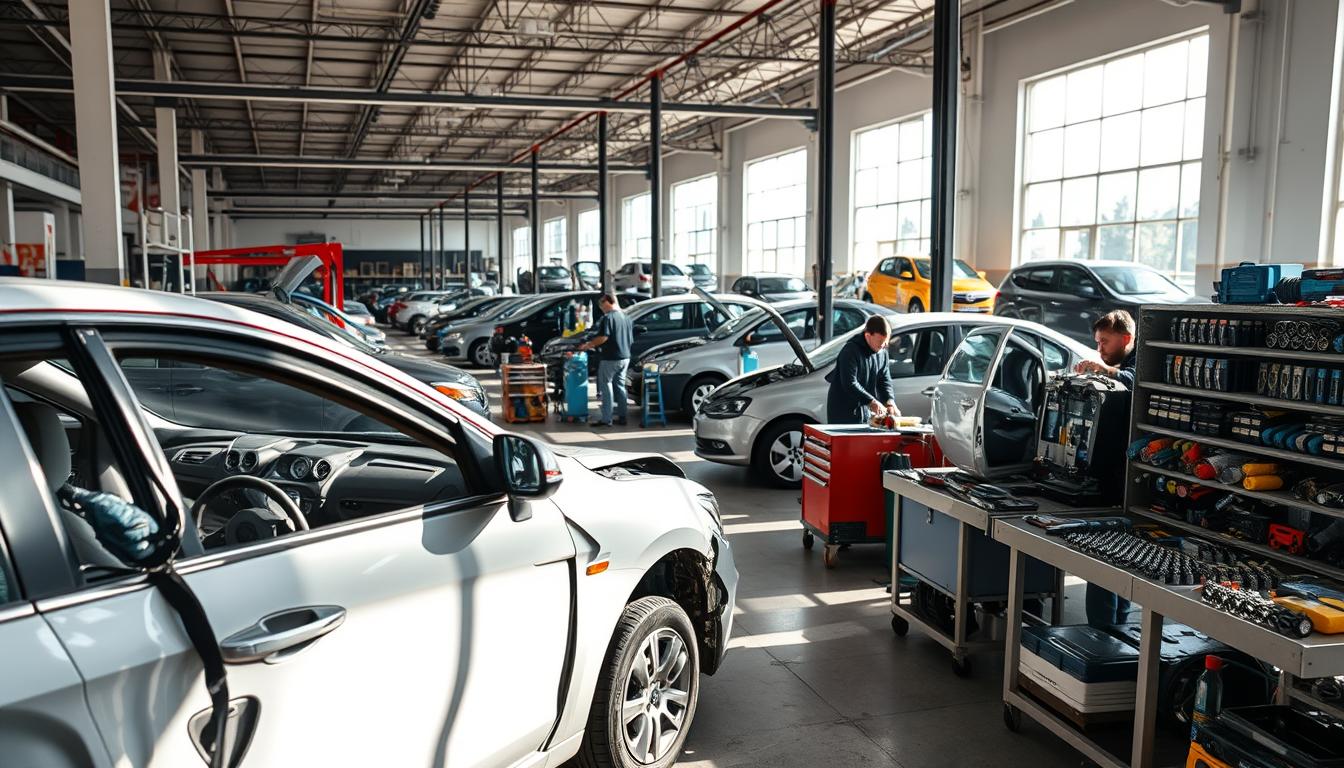
How Auto Body Repair Impacts the Environment
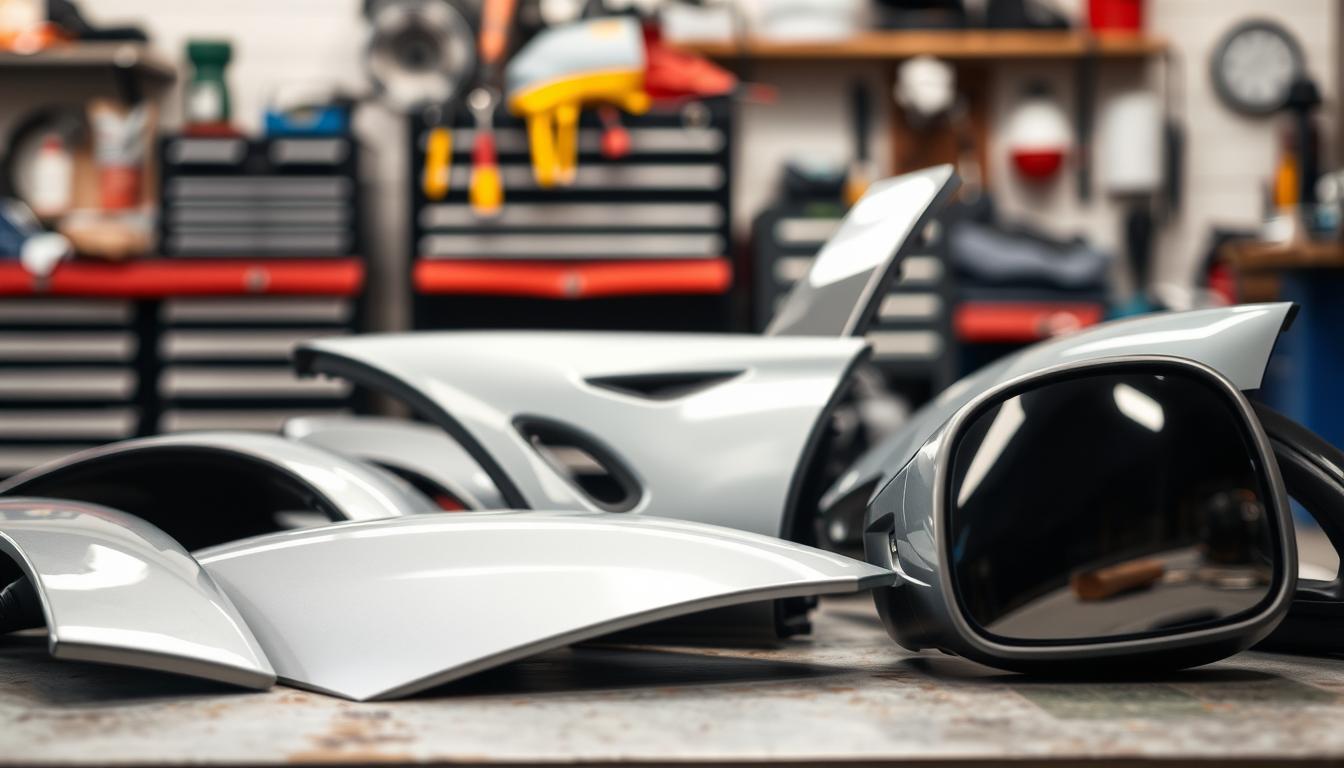
How to Determine When to Replace a Damaged Auto Body Part
After being involved in a collision, vehicle owners often face the daunting task of dealing with costly auto body repairs. The expenses can quickly add up due to the price of replacement parts and labor. However, there are ways to save money without compromising on the quality of the repair work.
Finding a reliable and affordable auto body shop is crucial. For residents in San Antonio, Miracle Body and Paint is a trusted name with two convenient locations. They understand the importance of cost savings and offer competitive pricing without sacrificing the quality of their work.
Key Takeaways
- Research local auto body shops to compare prices and services.
- Consider using aftermarket parts to reduce costs.
- Ask about potential discounts or promotions.
- Ensure the shop provides a detailed estimate before starting work.
- Check for customer reviews and ratings to gauge reliability.
Understanding the Auto Body Repair Process
Understanding the auto body repair process is crucial for saving money after a collision. The process involves several stages, from assessing the damage to completing the repairs. Being informed about these stages can help you navigate the process more efficiently.
Common Types of Collision Damage
Collision damage can vary widely, from minor cosmetic issues to major structural problems. Understanding the type of damage your vehicle has sustained is the first step in the repair process.
Minor Dents and Scratches
Minor dents and scratches are among the most common types of collision damage. These can often be repaired using techniques such as paintless dent repair, which can be cost-effective.
Frame and Structural Damage
More severe collisions can result in frame and structural damage, which requires more extensive and expensive repairs. Identifying such damage early is crucial for getting the right repairs done.
The Standard Repair Workflow
The standard repair workflow typically involves several key stages.
Assessment and Estimation
The first stage is assessing the damage and estimating the cost of repairs. This involves a thorough inspection of the vehicle to identify all areas of damage.
Disassembly and Repair
Once the assessment is complete, the next stage involves disassembling the vehicle to access damaged areas and then performing the necessary repairs.
Factors That Influence Repair Costs
Several factors can influence the cost of collision repairs.
Vehicle Make and Model
The make and model of your vehicle can significantly impact repair costs, with luxury or high-performance vehicles typically being more expensive to repair.
Extent of Damage
The extent of the damage is another critical factor, with more extensive damage requiring more time and resources to repair.
By understanding these aspects of the auto body repair process, you can better navigate the system and potentially save money on your collision repair.
Immediate Steps to Take After a Collision to Minimize Costs
To save on auto body repair, it’s essential to know the right steps to take immediately after a collision. The actions you take in the moments following an accident can significantly impact the overall cost of repairs.
Documenting the Damage Properly
Proper documentation is crucial for both insurance claims and the repair process. This involves taking effective photos and creating a written record of the damage.
Taking Effective Photos
When taking photos, ensure they are clear and comprehensive, capturing all angles of the damage. This visual evidence is vital for insurance adjusters and repair technicians.
Creating a Written Record
In addition to photos, a written record detailing the damage can be invaluable. Note the extent of the damage, any visible scratches, dents, or broken parts, and any other relevant observations.
Gathering Essential Information at the Accident Scene
Gathering information at the scene is critical for insurance and repair purposes. This includes exchanging driver information and obtaining witness statements.
Exchange of Driver Information
Ensure you exchange contact and insurance information with the other parties involved. This information is necessary for filing claims.
Witness Statements
If there are witnesses, obtain their statements and contact information. Witness accounts can provide valuable insights into the accident.
When to File a Police Report
Understanding when to file a police report is crucial, as it can affect insurance claims and the repair process.
Texas Requirements for Accident Reporting
In Texas, you are required to file a police report if the accident results in injury, death, or property damage exceeding $1,000. Familiarize yourself with these requirements to ensure compliance.
How Police Reports Affect Insurance Claims
A police report provides an official record of the accident, which can significantly impact insurance claims. It helps establish the facts of the incident, making it easier to process claims.
By taking these immediate steps after a collision, you can minimize costs associated with auto body repair. For professional and cost-effective collision repair, consider consulting with experts like those at Miracle Body and Paint. Their expertise can help ensure that your vehicle is restored to its original condition while saving you money.
Navigating Insurance Claims for Maximum Coverage
After a collision, navigating the insurance claims process is crucial for maximizing your coverage and minimizing out-of-pocket expenses. Understanding your policy and working effectively with insurance adjusters can significantly impact the cost savings on your auto body repair.
Understanding Your Policy Coverage in Texas
In Texas, it’s essential to comprehend the specifics of your auto insurance policy to ensure you’re adequately covered in the event of a collision. Two critical components of your policy are collision and comprehensive coverage.
Collision vs. Comprehensive Coverage
Collision coverage pays for damages to your vehicle resulting from a collision, regardless of fault. On the other hand, comprehensive coverage covers damages not related to collisions, such as theft, vandalism, or natural disasters. Understanding the difference between these two can help you navigate the claims process more effectively.
Deductibles and Their Impact
Your deductible is the amount you must pay out-of-pocket before your insurance coverage kicks in. Choosing a higher deductible can lower your premiums but may increase your upfront costs when filing a claim. It’s crucial to select a deductible that balances your financial situation with your insurance needs.
Working with Insurance Adjusters Effectively
When working with insurance adjusters, preparation is key. Being organized and knowledgeable can help ensure a smooth claims process.
Preparing for the Adjuster’s Visit
Before the adjuster visits, gather all relevant documentation, including photos of the damage, repair estimates, and any police reports. This preparation will help the adjuster assess the damage accurately.
Documenting All Communications
Keep a detailed record of all communications with your insurance adjuster, including dates, times, and the topics discussed. This documentation can be invaluable if there are any disputes or issues with your claim.
When to Accept or Challenge an Insurance Estimate
After receiving an insurance estimate, review it carefully to ensure it covers all necessary repairs. If the estimate appears inadequate, you have the right to challenge it.
Signs of an Inadequate Estimate
- Underestimation of repair costs
- Omission of necessary repairs
- Use of aftermarket parts when OEM is specified
The Appeals Process
If you decide to challenge the estimate, gather evidence to support your claim, including additional repair estimates or documentation from experts. Presenting a solid case can help you negotiate a more favorable outcome.
By understanding your policy coverage and working effectively with insurance adjusters, you can maximize your vehicle repair coverage and achieve significant cost savings.
Auto Body Repair Cost Savings: Strategic Approaches
To save on auto body repairs, it’s essential to adopt a few key strategies. After a collision, the cost of repairs can be daunting, but there are several ways to minimize expenses without compromising on quality.
Comparing Multiple Repair Estimates
One of the most effective ways to save money on auto body repairs is by comparing multiple repair estimates. This involves getting quotes from different repair shops to compare prices and services offered.
What to Look for in Detailed Estimates
When comparing estimates, it’s crucial to look for detailed breakdowns of the costs involved. A detailed estimate should include the cost of parts, labor, and any additional services such as painting or rental car fees.
How Miracle Body and Paint Provides Transparent Pricing
Miracle Body and Paint stands out by providing transparent pricing. They offer detailed estimates that clearly outline all costs, ensuring customers understand what they’re paying for.
Understanding Labor vs. Parts Costs
Understanding the difference between labor and parts costs can also help in saving money. Labor costs can vary significantly between repair shops, and parts can be either OEM (Original Equipment Manufacturer) or aftermarket.
Average Labor Rates in San Antonio
Labor rates in San Antonio can vary, but on average, you can expect to pay between $50 to $100 per hour, depending on the shop’s reputation and expertise.
Parts Markup Considerations
Parts markup is another factor to consider. Some shops may charge higher markups on parts, so it’s essential to ask about their parts pricing policy.
Timing Your Repairs for Better Rates
The timing of your repairs can also impact the cost. Repairing your vehicle during off-peak seasons or taking advantage of special promotions can lead to cost savings.
Seasonal Fluctuations in Repair Costs
Repair costs can fluctuate seasonally, with higher demand typically seen after severe weather events or during certain times of the year.
When to Delay Non-Critical Repairs
If possible, delaying non-critical repairs until a more opportune time can help in saving money. It’s essential to assess the urgency of the repairs and plan accordingly.
Choosing Between OEM and Aftermarket Parts
After a collision, car owners face a critical choice that can impact their vehicle’s repair quality and cost: whether to opt for OEM or aftermarket parts. This decision is crucial for ensuring that the repair is done correctly and that the vehicle is restored to its original condition.
Quality Differences Between Part Types
The primary distinction between OEM and aftermarket parts lies in their quality. OEM parts are manufactured by the same company that produced the original parts for your vehicle, ensuring a precise match in terms of quality and specifications.
OEM Parts Advantages
OEM parts offer several advantages, including guaranteed compatibility and high-quality standards. They are designed to meet the manufacturer’s specifications, ensuring a perfect fit and maintaining the vehicle’s original performance and safety features.
Aftermarket Quality Variations
Aftermarket parts, on the other hand, are made by third-party manufacturers and can vary significantly in quality. While some aftermarket parts may offer comparable quality to OEM parts, others may be inferior, potentially compromising the vehicle’s safety and performance.
Cost Implications of Different Parts
The cost is another significant factor when deciding between OEM and aftermarket parts. Generally, OEM parts are more expensive than their aftermarket counterparts.
Price Comparison Analysis
A price comparison between OEM and aftermarket parts reveals that OEM parts can be significantly pricier. However, the higher cost is often justified by the assurance of quality and compatibility.
Long-term Value Considerations
While aftermarket parts may offer short-term cost savings, OEM parts can provide long-term value by maintaining the vehicle’s original quality and potentially reducing future repair costs.
When to Insist on OEM Parts
There are situations where insisting on OEM parts is advisable, particularly when it comes to safety-critical components and warranty protection.
Safety-Critical Components
For components that are crucial to the vehicle’s safety, such as airbags or brake systems, OEM parts are recommended to ensure that the vehicle remains safe to operate.
Warranty Protection Issues
Using OEM parts can also be important for maintaining warranty protection. Installing aftermarket parts could potentially void certain warranties, leaving the vehicle owner with significant repair bills down the line.
At Miracle Body and Paint, we understand the importance of choosing the right parts for your vehicle’s repair. Our experts are here to guide you through the process, ensuring that your vehicle is restored to its original condition while also considering your budget.
DIY vs. Professional Repairs: What You Can Safely Handle Yourself
DIY repairs can be a cost-effective solution for minor vehicle damage, but knowing when to seek professional help is crucial. While attempting DIY repairs can save on labor costs, it’s essential to assess the extent of the damage and your ability to perform the repairs correctly.
Minor Repairs You Can Do at Home
For minor damages, such as small dents and scratches, DIY repairs can be a viable option. Techniques like small dent removal and touch-up paint applications can be effective.
Small Dent Removal Techniques
Small dent removal can be done using DIY kits available in the market. These kits usually include tools like dent pullers and glue guns. It’s a cost-effective method for minor dents.
Touch-up Paint Applications
Touch-up paint can be used to cover minor scratches. It’s essential to match the paint color accurately to blend with the surrounding area.
Tools and Skills Required for DIY Repairs
To undertake DIY repairs, you’ll need the right tools and skills. Basic body work requires tools like sandpaper, paintbrushes, and dent removal kits.
Essential Tools for Basic Body Work
- Sandpaper and sanding blocks
- Paintbrushes and touch-up paint
- Dent removal kits
Learning Resources for DIY Repairs
There are numerous online resources, including tutorials and forums, where you can learn DIY repair techniques. Websites like YouTube and automotive forums can provide valuable guidance.
When DIY Becomes More Expensive Than Professional Work
While DIY repairs can be cost-effective, there are instances where they can become more expensive than professional work, especially if mistakes are made.
Common DIY Mistakes to Avoid
- Incorrect paint color matching
- Inadequate surface preparation
- Using the wrong tools
How Miracle Body and Paint Can Fix DIY Gone Wrong
If your DIY repairs haven’t turned out as expected, Miracle Body and Paint can help. Their professional team can fix common DIY mistakes, ensuring your vehicle looks like new.
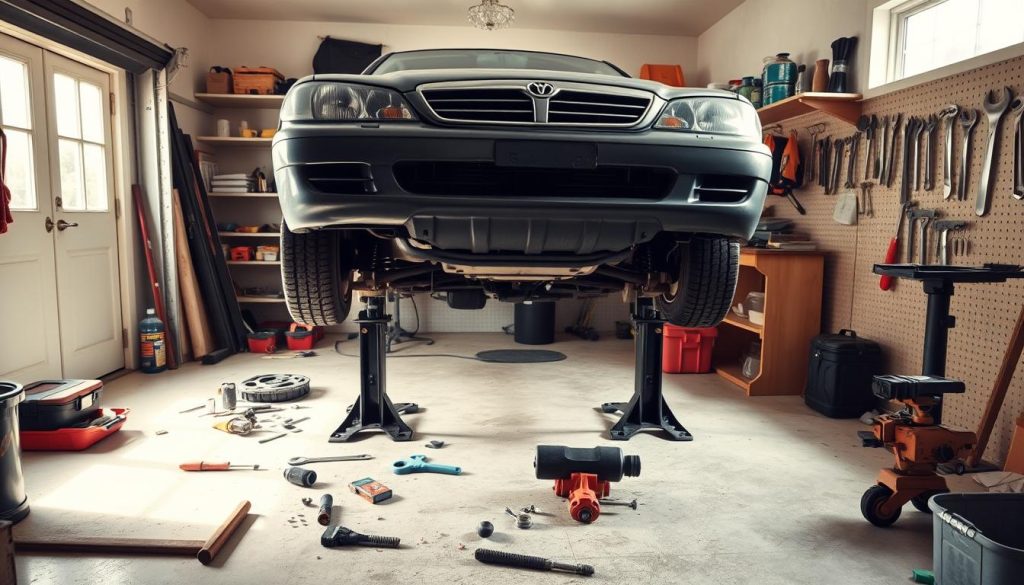
For more complex repairs or if you’re unsure about tackling a repair yourself, consider consulting professionals like Miracle Body and Paint to ensure quality workmanship and avoid additional costs in the long run.
Advanced Repair Technologies That Save Money
The latest advancements in auto body repair technologies are revolutionizing the way collision damage is addressed, leading to significant cost savings. These technologies not only improve the efficiency of the repair process but also enhance the quality of the work.
Paintless Dent Repair Benefits
Paintless dent repair (PDR) is a technique that allows technicians to remove minor dents and dings without the need for painting. This method is particularly beneficial for maintaining the vehicle’s original finish.
Ideal Scenarios for PDR
PDR is ideal for small to medium-sized dents where the paint is intact. It’s commonly used for hail damage, door dings, and minor collision damage.
Cost Savings Compared to Traditional Methods
By avoiding the need for painting and filling, PDR can significantly reduce repair costs. It’s a cost-effective solution that also preserves the vehicle’s original paint job.
Computer-Assisted Estimating and Repair
Computer-assisted technologies are transforming the estimating and repair process. These systems provide precise damage assessments and streamline parts ordering.
Precision in Damage Assessment
Computer-assisted estimating tools help technicians accurately assess damage, reducing the likelihood of overlooked repairs.
Efficiency in Parts Ordering
These systems also facilitate efficient parts ordering, ensuring that the correct components are procured quickly, thus reducing downtime.
Miracle Body and Paint’s Technology Advantage
Miracle Body and Paint, with its two locations in San Antonio, leverages state-of-the-art equipment and certified technicians to provide top-notch collision repair services.
State-of-the-Art Equipment
The shop utilizes the latest technology to ensure precise repairs and efficient processing.
Technician Certification and Training
Technicians at Miracle Body and Paint undergo rigorous training and certification, ensuring they are equipped to handle the latest repair technologies.
How to Select a Cost-Effective Auto Body Shop in San Antonio
After a collision, finding a reliable and cost-effective auto body shop in San Antonio is crucial for minimizing repair costs. With numerous options available, it’s essential to know what to look for to ensure you receive quality repairs without overpaying.
Researching Repair Shop Reputations
One of the first steps in selecting a cost-effective auto body shop is to research their reputation. This can be done by checking online reviews and ratings on platforms like Google and Yelp. Additionally, checking the shop’s standing with the Better Business Bureau can provide insights into their reliability and customer satisfaction levels.
Online Reviews and Ratings
Online reviews can give you a sense of the shop’s quality of work and customer service. Look for patterns in the feedback, such as consistent praise or complaints.
Better Business Bureau Standing
A good standing with the BBB indicates that the shop is committed to resolving customer complaints and operates ethically.
Questions to Ask Before Committing
Before choosing an auto body shop, it’s crucial to ask the right questions. Inquire about their warranty policies and turnaround time guarantees. A reputable shop will stand behind their work with a comprehensive warranty and provide a clear timeline for the repairs.
Warranty Policies
A robust warranty policy protects you in case the repairs are not satisfactory.
Turnaround Time Guarantees
Understanding how long the repairs will take helps you plan accordingly.
Red Flags That Signal Potential Overcharging
Be cautious of shops that provide vague estimates or use pressure tactics. These are signs that the shop might not have your best interests in mind.
Vague Estimates
A detailed estimate is crucial for understanding the costs involved.
Pressure Tactics
Be wary of shops that rush you into making a decision.
Why Miracle Body and Paint Stands Out in San Antonio
Miracle Body and Paint is a standout choice for auto body repairs in San Antonio due to its transparent pricing model and customer satisfaction guarantee. They prioritize customer needs and provide high-quality repairs at competitive prices.
Transparent Pricing Model
Miracle Body and Paint ensures that customers understand what they’re paying for.
Customer Satisfaction Guarantee
Their commitment to customer satisfaction is evident in their guarantee, providing peace of mind for their clients.
Negotiating Repair Costs with Body Shops
Effective negotiation with auto body shops is a valuable skill that can help you reduce the financial burden of vehicle repair.
Understanding the Estimate Breakdown
To negotiate effectively, it’s crucial to understand the components of the repair estimate. This includes labor hours and rates, as well as parts pricing.
Labor Hours and Rates
Labor costs can significantly impact the total repair bill. Understanding how labor hours are calculated and the rates charged by the body shop can help you identify potential areas for negotiation.
Parts Pricing
The cost of parts can vary widely depending on whether OEM (Original Equipment Manufacturer) or aftermarket parts are used. Knowing the difference can help you make informed decisions during negotiations.
Effective Negotiation Strategies
Negotiating with body shops requires a strategic approach. Two effective strategies include bundling multiple repairs and timing your negotiations strategically.
Bundling Multiple Repairs
If you have multiple repairs needed, bundling them together can sometimes result in a better overall deal, as shops may offer discounts for larger jobs.
Timing Negotiations Strategically
The timing of your negotiation can also impact the outcome. Negotiating during slower periods or at the end of the month might yield better results.
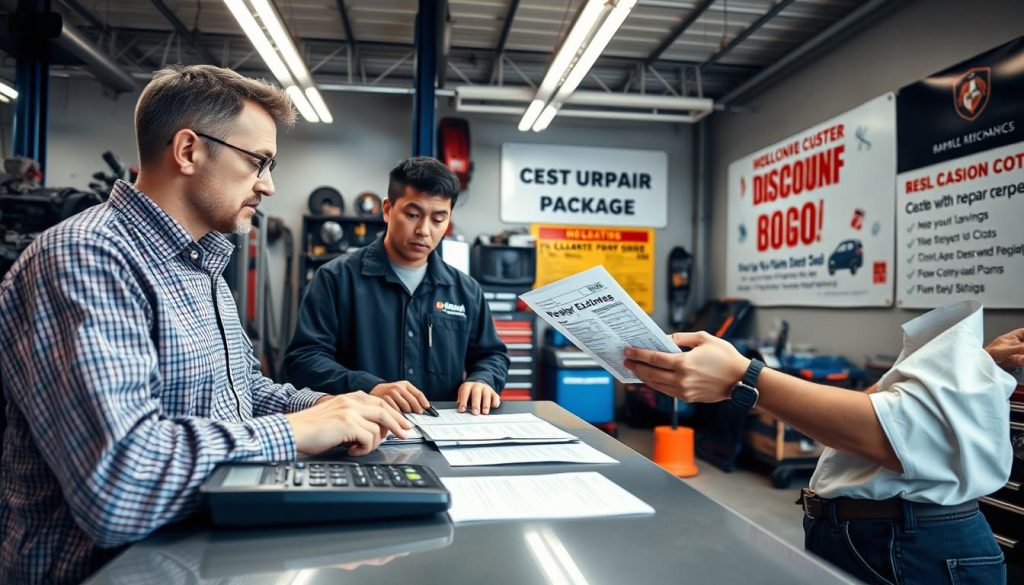
When to Walk Away from a Deal
It’s essential to know when to walk away from a negotiation that isn’t in your favor. Recognizing unreasonable terms and finding alternative solutions are key.
Recognizing Unreasonable Terms
If the terms of the repair are unreasonable or not clearly explained, it may be time to consider another body shop.
Finding Alternative Solutions
Having alternatives can give you leverage in negotiations. Researching and identifying other reputable body shops can provide you with the options you need.
By understanding the estimate breakdown and employing effective negotiation strategies, you can achieve significant cost savings on your vehicle repairs.
Preventative Maintenance to Avoid Costly Future Repairs
Regular upkeep is essential for extending the life of your vehicle and preventing expensive collision repairs. By adopting a proactive maintenance routine, you can identify and address potential issues before they become major problems.
Regular Inspections to Catch Problems Early
Regular inspections are crucial for maintaining your vehicle’s health. This involves both self-inspections and professional check-ups.
What to Look for During Self-Inspections
During self-inspections, look for signs of wear and tear, such as scratches, dents, and rust spots. Check your vehicle’s paint and body for any damage.
Professional Inspection Schedule
It’s recommended to have a professional inspection at least once a year. Miracle Body and Paint, with its two locations in San Antonio, offers comprehensive inspection services to help you stay on top of your vehicle’s maintenance.
Protecting Your Vehicle’s Paint and Body
Protecting your vehicle’s exterior is vital for preventing damage. Simple practices can make a significant difference.
Waxing and Protective Coatings
Regular waxing and applying protective coatings can shield your vehicle’s paint from environmental damages. This is a simple yet effective way to maintain your vehicle’s appearance and integrity.
Parking Strategies to Minimize Damage Risk
Parking in safe, well-lit areas and avoiding tight spaces can reduce the risk of collision damage.
Addressing Minor Damage Before It Worsens
Minor damages, if left unaddressed, can lead to more significant and costly repairs. It’s essential to tackle these issues promptly.
Rust Prevention Techniques
Using rust-proofing treatments and addressing any rust spots immediately can prevent the spread of rust and further damage.
Quick Fixes That Prevent Major Expenses
- Repairing minor dents and scratches promptly
- Addressing paint chips and fading
- Regularly cleaning and maintaining your vehicle’s exterior
Conclusion: Making Smart Decisions for Long-Term Savings
Making informed decisions is crucial to achieving cost savings on auto body repairs after a collision. By understanding the repair process, navigating insurance claims effectively, and choosing the right repair shop, you can significantly reduce your expenses.
Throughout this article, we’ve explored various strategies to minimize costs, from documenting damage properly to selecting between OEM and aftermarket parts. By applying these insights, you can ensure that your vehicle is restored to its original condition without breaking the bank.
For reliable and cost-effective collision repair services in San Antonio, consider Miracle Body and Paint. With two convenient locations, their expert technicians utilize advanced technologies to deliver high-quality repairs. To schedule a consultation, visit their website or contact them directly at their website. By choosing Miracle Body and Paint, you can trust that your vehicle is in good hands, ensuring long-term savings and peace of mind.

